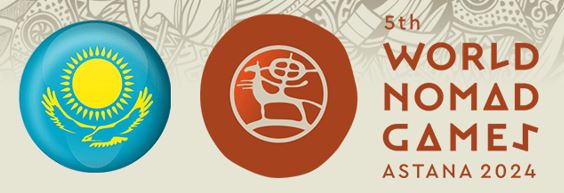
By Milton Atanazio
Thus, the World Nomad Games emerged, a kind of Olympics of Nomadic Peoples, which brings together more than 70 countries every two years to compete in 37 traditional sports of nomadic peoples.
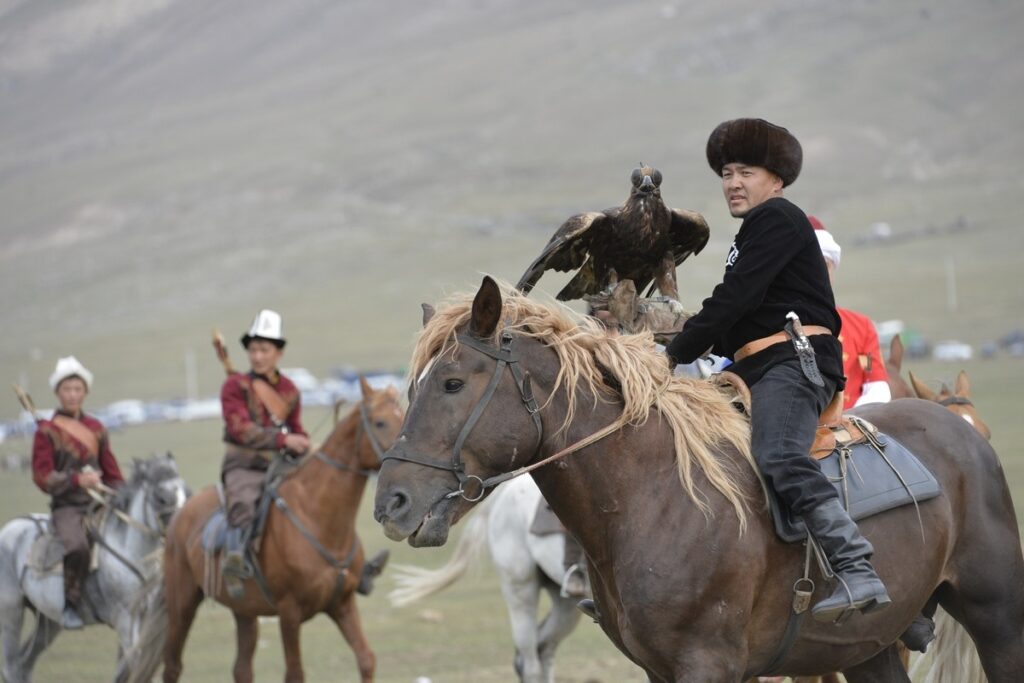
In addition to the sporting competition, the event is a celebration of culture, featuring a village tribe where cultural presentations from different nations are held and experiences linked to nomadic life are offered, such as living in yurts, trying out clothes and food from different nationalities.
In the last edition, in 2018, the World Nomad Games opened an amphitheater for music and fashion shows, with the participation of more than 70 countries, making the event even more comprehensive and culturally enriching.
The World Nomadic Games aim to preserve and promote the rich cultural heritage of nomadic peoples, who historically inhabited vast regions of Central Asia and other parts of the world.
Sports are based on the traditions of these people. The first three World Nomad Games were held in Cholpon-Ata, Kyrgyzstan. The fourth games were held in Iznik, Turkey between 29 September and 2 October 2022. More than 3000 athletes from 102 countries participated in the events.
HOW WERE THE WORLD NOMAD GAMES BORN?
The World Nomad Games arose from the idea of philanthropist Askhat Akibaev, who sought to promote Kyrgyz culture. However, he decided to expand the festival to include traditions of nomadic peoples from around the world. Thus, the Nomadic Peoples Olympics was born, bringing together more than 70 countries in competitions in 37 traditional sports.
In addition to a sporting competition, the World Nomad Games are also a cultural festival. In the third edition, in 2018, an ethnic village was set up for cultural presentations from different nations, presenting historical experiences of nomadic culture, such as living in yurts and trying foods from different countries.
Another novelty was the inauguration of an amphitheater for music and fashion shows, with the participation of more than 70 countries. The World Nomad Games have become a unique platform to promote and celebrate a rich diversity of cultures around the world.
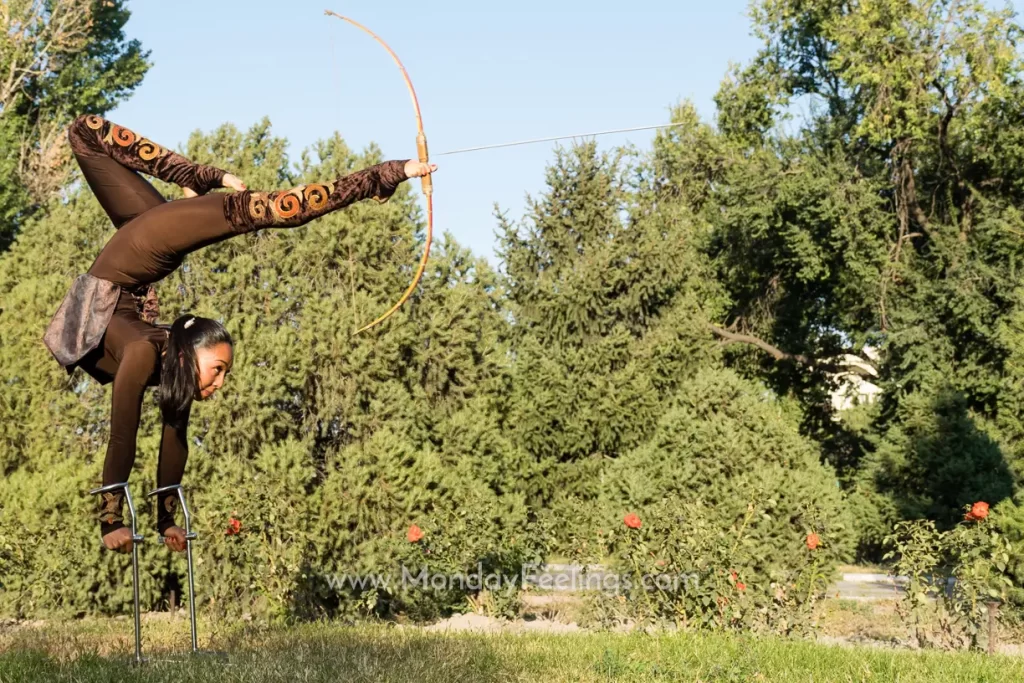
THE SPORTS COMPETITIONS OF THE NOMAD GAMES:
Horseback archery, horseback wrestling and Kok-Buru, also known as Central Asian polo, are some of the most exciting and fascinating competitions, taking spectators into a world of adventure and dexterity. Kok-Buru, in particular, with its experts in using a decapitated goat as a ball, reveals the intensity and tradition behind this ancient sport.
These competitions are not only exciting and entertaining, but they also rescue and preserve the history and identity of nomadic peoples. They are true celebrations of culture, strength and unity, transmitting essential values to the nomadic community. It is important to value and consider the importance of these unique sporting practices, which represent a whole way of living and being for people around the world.
SPORTS FEATURES
Sports features include archery competitions, horse racing, wrestling, dog racing, among other traditional activities. In addition to sporting competitions, the World Nomad Games also offer a series of cultural events, such as traditional costume parades, folk music and dance performances, craft exhibitions and typical cuisine of nomadic peoples.
Alysh, a Belt-and-jacket type of fight; Salburun a mixed sport between Falconry, mounted archery and Taigan assisted hunting; Shagai; Horse racing; Er enish; Toguz korgool; Kourach; Kok-boru (a sport like Buzkashi, where riders fight for carcasses).
The event has gained increasing prominence and attracted the attention of countries around the world, becoming an important platform to promote intercultural dialogue and strengthen ties between nomadic and sedentary communities.
The World Nomad Games represent a unique opportunity to celebrate and preserve the ancient traditions of nomadic peoples, as well as promoting respect and appreciation for cultural diversity in an increasingly globalized world.
The World Nomad Games is an international competition for ethnic sports played in Central Asia. Sports are based on the traditions of these people, the first two competitions 2014 and 2016 were held in Cholpon-Ata, Kyrgyzstan.
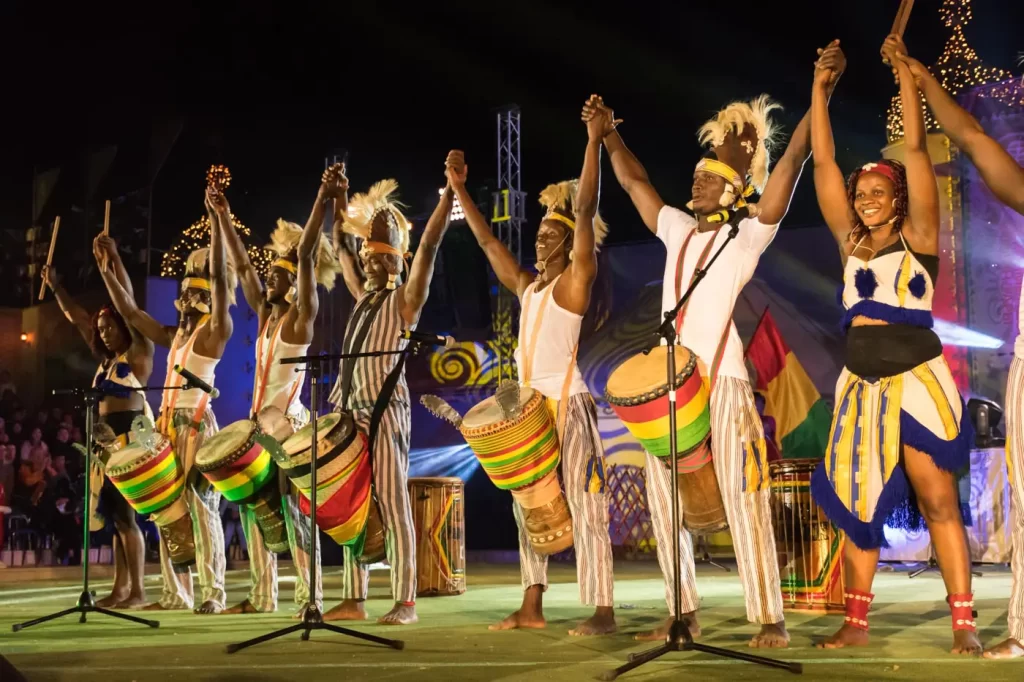
ATHLETES
In 2014 – 583 athletes from 19 countries, 10 sports.
In 2016 – 1,200 athletes from 62 countries, 26 sports.
In 2018 – 2 thousand athletes from 82 countries, 37 sports. The 4th World Nomad Games were held in 2022 in Iznik, Türkiye. 3,000 athletes from 102 countries, 13 sports.
KAZAKHSTAN HOST
Kazakhstan will host the V WORLD NOMAD GAMES in 2024, from September 8th to 13th, in the city of Astana. The World Nomad Games aim to preserve historical and cultural heritage and diversity in an era of globalization.
In addition to the sports competition, there will be cultural activities and a scientific conference with the theme "Nomads: History, Knowledge, Lessons". The World Nomad Games are included in the UNESCO Intangible Cultural Heritage List. With the transfer of the right to host the WNG to Kazakhstan, the list of countries hosting the Games was expanded, attracting the attention of a wide audience not only in Eurasia.
First of all, the countries where people live - heirs of nomadic civilization - participate in the Nomad Games. Teams from around the world, including non-nomadic countries, are also invited to participate in the World Nomad Games in Astana.
The WNG is the largest national sports competition in the world today. According to provisional estimates, around 3,000 participants from more than 100 countries will arrive in Astana to take part in 7-day competitions, both in sports arenas and cultural and scientific programs.
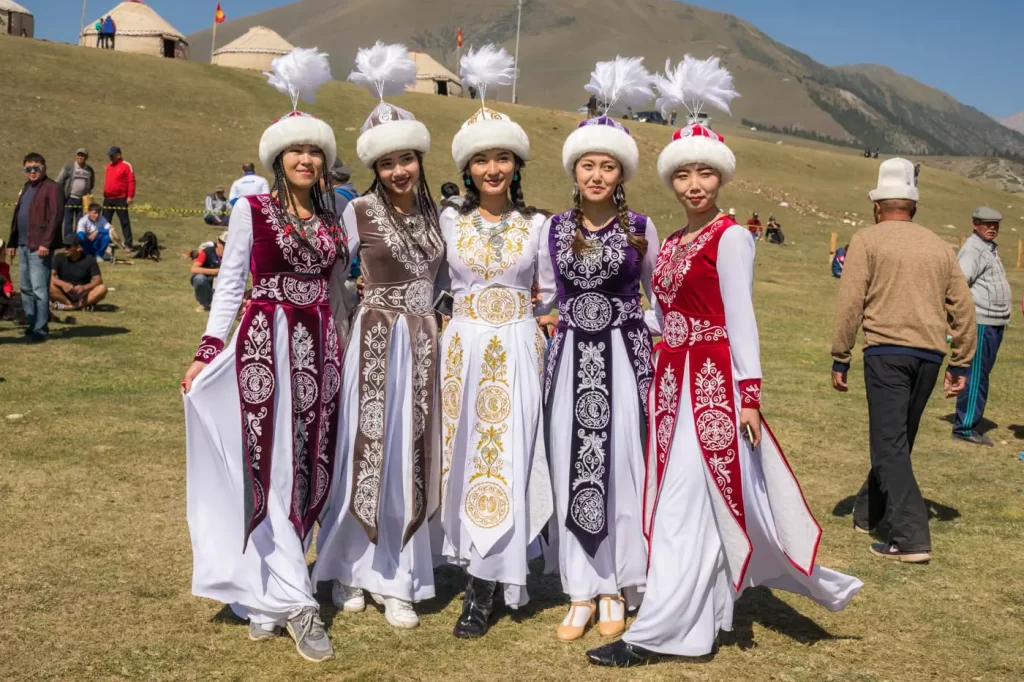
ORGANIZATION
The organizer of the WNG is the Government of the Republic of Kazakhstan. For the effective preparation and conduct of the WNG, the WNG Organizing Committee was established under the chairmanship of the Deputy Prime Minister of the Republic of Kazakhstan. The Organizing Committee included heads of authorized state bodies, heads of akimats of regions and cities of republican importance, heads of national corporations, enterprises, public organizations.
To carry out current organizational work, the Ministry of Culture and Sports of the Republic of Kazakhstan created the Directorate for the preparation and holding of WNG Astana 2024. The functions of the Directorate are assigned to Kazsportinvest JSC.
The Organizing Committee approved the WNG Astana 2024 Regulations upon presentation by the WNG Management. The Regulation details the conditions for participation of sports teams in the WNG. The WNG Regulations are sent to all interested national organizations (associations, federations, unions, clubs) and constitute an official invitation to participate in the V WNG Astana 2024.
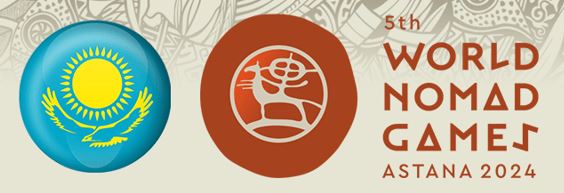
INFRASTRUCTURE
To form the infrastructure of WNG Astana 2024, the most convenient principle of “linear” construction was applied, which consists of placing the maximum number of facilities involved in the Games along one line.
The 5th WNG infrastructure includes 6 metropolitan facilities: Astana Arena Stadium, Kazanat Racetrack, Wrestling Palace named after Zh.Ushkempirov, Alau Ice Palace, Qazaqstan Athletic Sports Complex, Duman complex.
Competitions in horse racing, traditional archery and national types of bird hunting, as well as horse riding competitions will be held at the Kazanat race track and on the territory of Ethnoaul. The Wrestling Palace named after Zh.Ushkempirov and Alau Ice Palace will host competitions in national wrestling, martial arts and folk games, and traditional intellectual games will be held in the Duman complex. The Qazakhstan Athletics Sports Complex will house the WNG Accreditation and Equipment Centers.
The main place of implementation of the WNG cultural program will be the Universe of Nomads, Ethno-village (Ethno-Aul), which is located on the territory of 10 hectares adjacent to the Kazanat race track on the southwest side, as well as the activities of the cultural program will be additionally held in various locations in Astana (city squares, parks, public gardens, other public spaces, theaters, concert halls, cinemas, museums, exhibition halls, etc.).
The Games' scientific program events will be held at the National Museum of the Republic of Kazakhstan.
Around 23 hotels located close to the sports facilities included in the WNG Astana 2024 infrastructure will be used to accommodate guests.
OPENING AND CLOSING CEREMONIES OF THE GAMES
Since the time of the Ancient Olympic Games, the opening ceremony has been an integral part of the Games. Following the traditions of the main international sports forums, the most significant and brightest events of the Nomad Games are the opening and closing ceremonies of the Games. The cultural heritage of the host country, the most important milestones in the development of the state, the presentation of masterpieces of musical and choreographic culture will be presented through theatrical performances.
Teams from participating countries will march in separate groups in alphabetical order. The opening ceremony necessarily includes the procedure for raising and raising the State Flag of the Republic of Kazakhstan and the flag of the World Nomad Games, as well as the performance of the National Anthem of the Republic of Kazakhstan and the Anthem of the World Nomad. Games.
The Opening Ceremony culminates with a speech by the Head of State, who will officially announce the opening of the Games.
The Closing Ceremony of the 5th World Nomad Games will take place at the Kazanat Central Racetrack immediately after the final match of the finalist teams of the Kokpar tournament. The parade of participants will take place in the format of a common team, symbolizing the cohesion of the athletes who became a family during the Games.